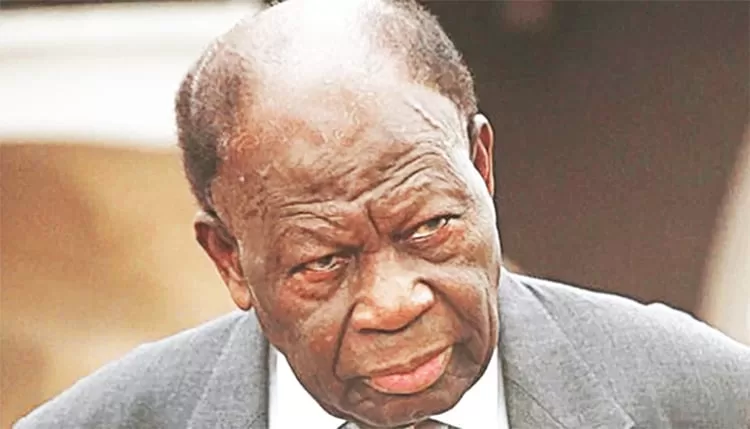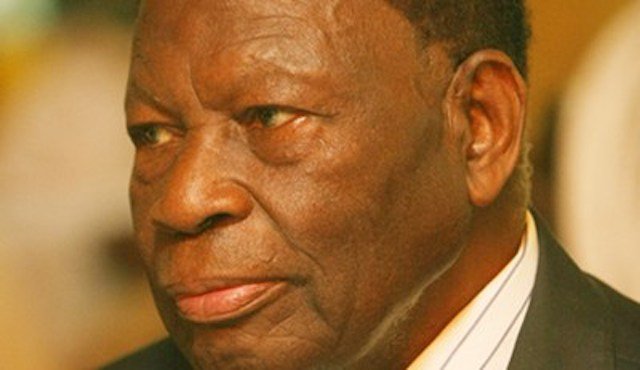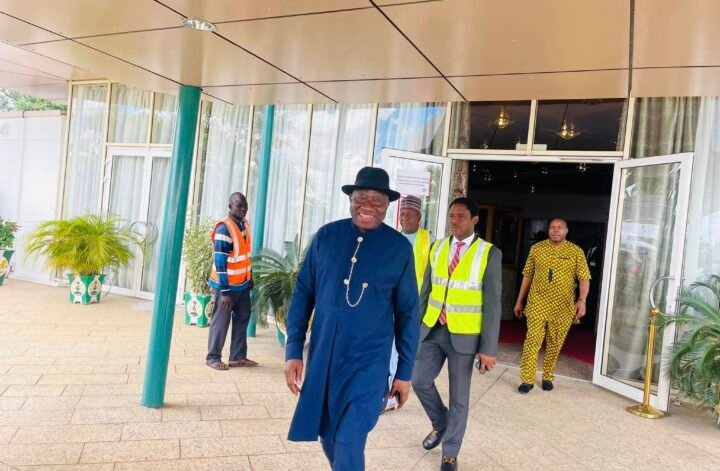Nigeria, a nation known for its rich cultural heritage and diverse talents, has been the birthplace of countless individuals who have left an indelible mark on the world stage. One such luminary figure, whose extraordinary journey from humble beginnings to groundbreaking achievements has inspired generations, is the late Pa Akintola Williams. Reputed as the first Sub-Saharan African to become a chartered accountant, his legacy transcends Nigeria’s borders. As Africa and the rest of the world mourn the passing of this iconic figure, we reflect on the life and accomplishments of a man who not only revolutionized the field of accountancy but also paved the way for countless others to follow in his footsteps.

Early Life and Education: The Seeds of Excellence
Akintola Williams was born in Lagos on August 9, 1919, to T. Ekundayo Williams, a man whose dedication to education would profoundly influence the trajectory of his son’s life. From an early age, young Akintola displayed an insatiable thirst for knowledge. His formal education commenced at Baptist Academy, Lagos, in 1927, marking the beginning of a remarkable journey that would shape the future of accountancy in Nigeria.
Completing his secondary education at CMS Grammar School in 1938, Akintola’s intellectual prowess was evident. However, his initial aspirations lay outside the world of accountancy. Surveying captured his imagination, yet the absence of suitable courses in this field at Yaba Higher College forced him to reconsider. It was during this pivotal moment that destiny intervened in the form of John Selby, an expatriate chartered accountant who would become his guiding light.

Training
In 1944, Akintola Williams embarked on a life-altering journey to the United Kingdom on a government scholarship, where he would train as a chartered accountant. However, his early months in England were fraught with adversity, as the world grappled with the turmoil of World War II and racial prejudice loomed large. The doors of accountancy firms remained largely closed to individuals of color.
Persistence and determination became his allies. After an arduous search for employment, he secured a position as an articled clerk at Binder Hamlyn & Co. in 1946. During this period, he also managed to complete his Commerce degree at the University of London. In December 1949, Akintola Williams achieved a historic milestone by passing the final examinations of the Institute of Chartered Accountants in England and Wales, becoming the first Nigerian chartered accountant.
Early Career: A Return to Nigeria’s Service
With his new credentials in hand, Akintola Williams returned to Nigeria in 1950, poised to make an impact. He accepted a role as Inspector of Taxes, where he had the privilege of working alongside his mentor, John Selby, who had once inspired him to pursue accountancy.
However, the entrepreneurial spirit within him soon beckoned. In 1952, Akintola Williams boldly ventured into uncharted territory by establishing Akintola Williams & Co., the first indigenous accountancy firm in Nigeria. This audacious decision, marked by the relinquishment of a secure government job, was fraught with uncertainty and intense competition from established international firms.
Operating initially from his Obalende home, the firm’s early years were sustained through the patronage of prominent Nigerian entrepreneurs, including Dr. Nnamdi Azikiwe, Chief Timothy Odutola, Sir Odumegu Ojukwu, and Sir Mobolaji Bank-Anthony. The firm’s growth was evident when, in October 1957, it admitted its first partner, Charles Sankey. Akintola Williams & Co. went from strength to strength, eventually merging twice between April 1999 and May 2004, leading to its transformation into Akintola Williams Deloitte, Nigeria’s largest professional services firm with over 600 dedicated professionals.
Legacy
Akintola Williams’ influence extended far beyond the realm of finance. He was a mentor and source of inspiration to numerous young Nigerians, many of whom followed his path to become qualified chartered accountants in the late 1950s and early 1960s. In December 1960, he co-founded the Association of Accountants in Nigeria and served as its first president. He tirelessly championed the incorporation of the Institute of Chartered Accountants of Nigeria (ICAN) through an Act of Parliament in September 1965, aiming for a unified body of accountants in the country.

In recognition of his exceptional contributions, the Nigerian Government bestowed upon him the Order of the Federal Republic (OFR) in 1982. He retired from his firm in 1983 but continued to receive accolades, including ICAN’s first-ever Gold Medal Merit Award in 1988. His commitment to the arts, culture, and music was also acknowledged when Queen Elizabeth II conferred upon him the title of Commander of the British Empire (CBE) in 1997 for his promotion of these endeavors through the Musical Society of Nigeria (MUSON), a project he initiated in 1993.
The life and legacy of Pa Akintola Williams serve as a shining example of what can be achieved with unwavering determination, resilience, and a passion for excellence. His groundbreaking contributions to the world of accountancy, as well as his enduring commitment to the betterment of Nigerian society and culture, leave an indomitable legacy that will continue to inspire generations to come.




